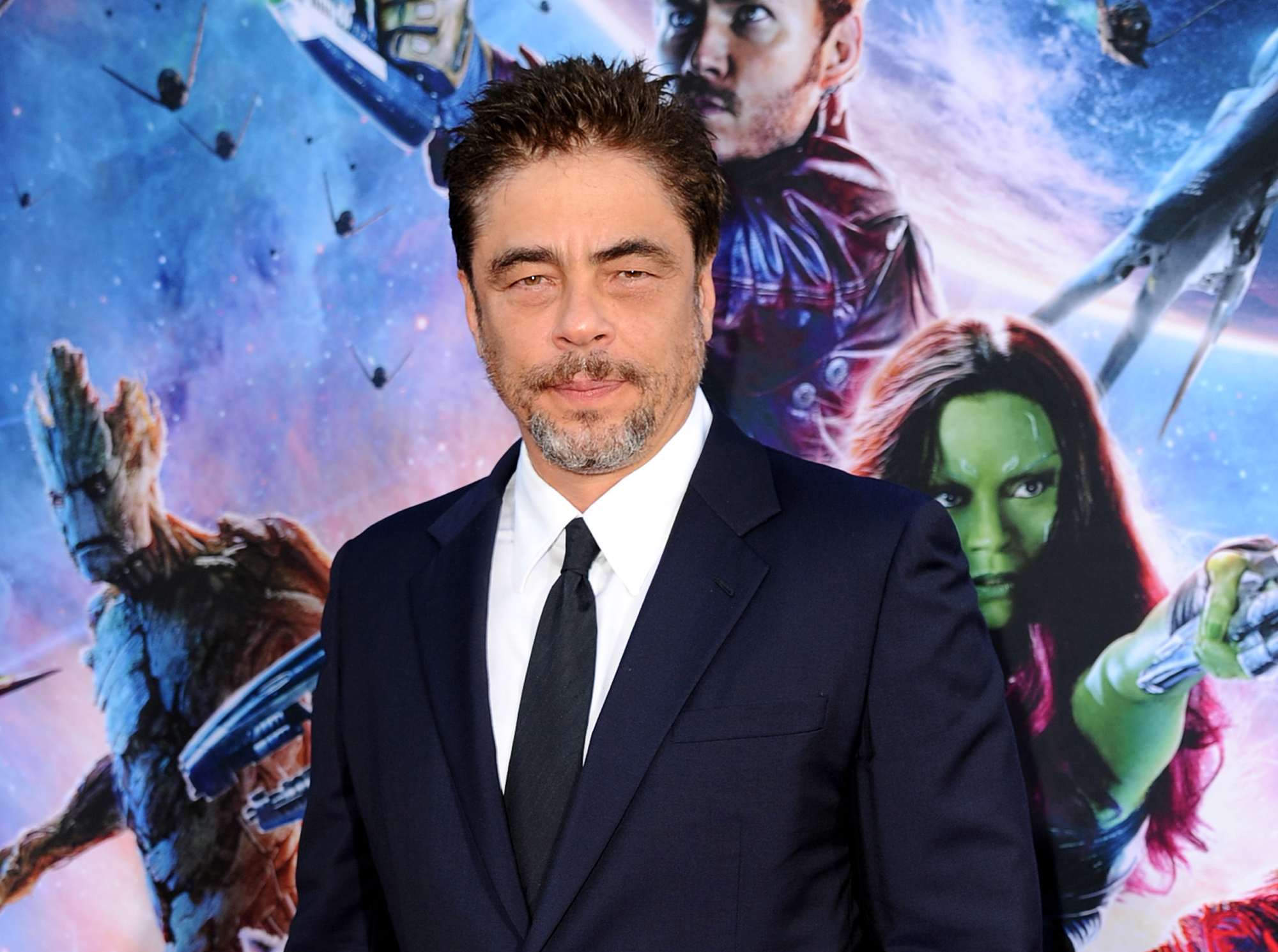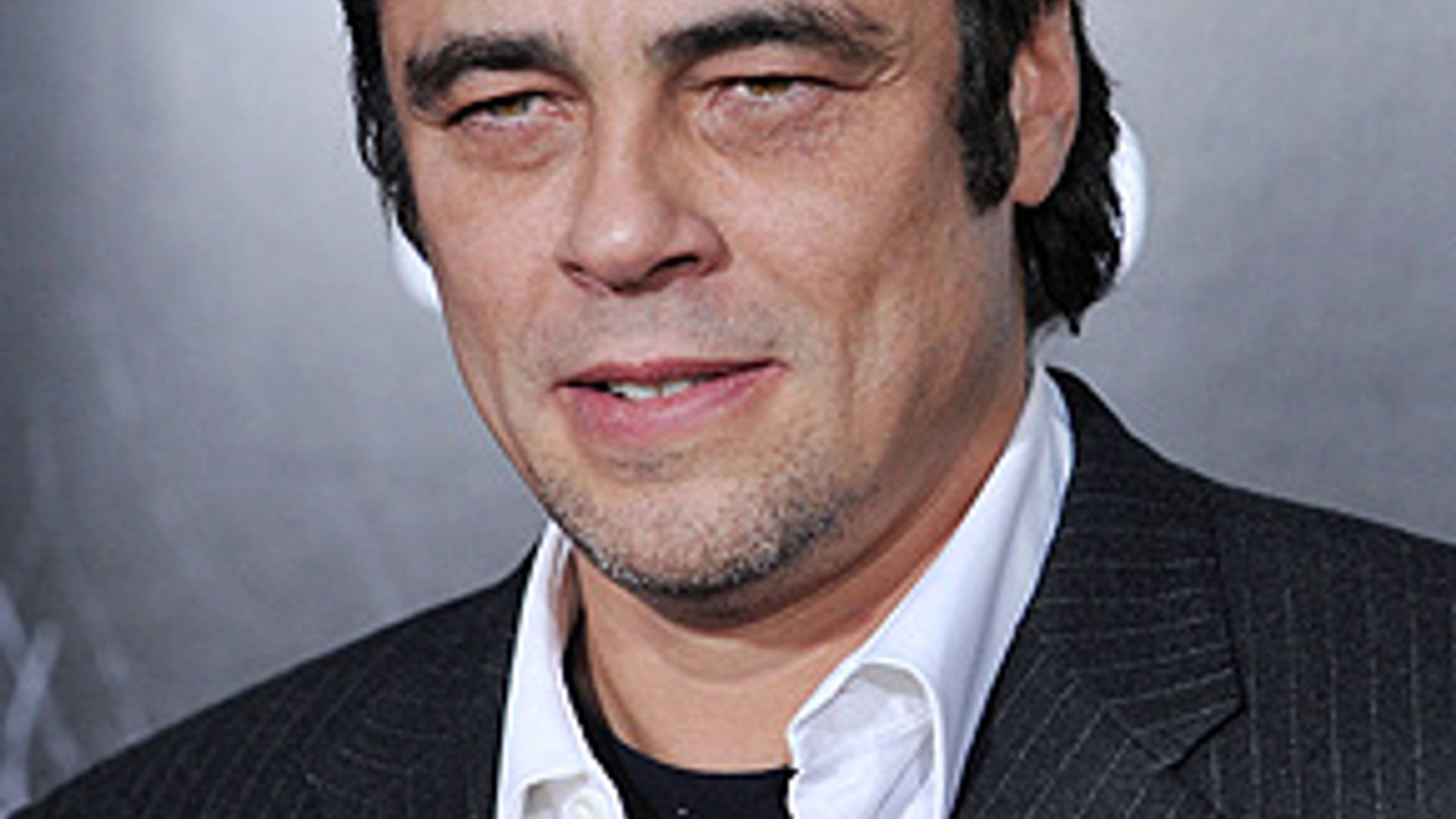Benicio Del Toro Produced S: Exploring His Impact Behind The Camera
Most people know Benicio Del Toro for his powerful acting, a presence that just seems to command the screen. We see him in all sorts of roles, often playing characters that stay with you long after the movie ends. He has a way of bringing a deep truth to every part, so you really feel what the character is going through. It is that intense focus and dedication that truly makes his performances stand out, you know, in a very memorable way.
But there's more to his work than just what we see in front of the camera, actually. Benicio Del Toro also steps into a different, equally important role: that of a producer. This means he helps bring films to life from the very beginning, working behind the scenes to shape the stories we eventually get to watch. It's a role that lets him put his creative stamp on projects in a whole new way, giving him a chance to guide the overall vision, and so that is quite interesting.
So, what does it truly mean when you hear that Benicio Del Toro produced something? It suggests a deeper involvement, a commitment to the entire filmmaking process. This role allows him to select projects, influence their direction, and make sure the final product matches a specific artistic idea. We are going to look closer at his work as a producer, exploring the kinds of films he has helped create and the impact he has had on them, too it's almost like seeing another side of his talent.
Table of Contents
- Benicio Del Toro: A Look at His Life and Work
- What Does it Mean When Benicio Del Toro Produced S?
- Key Productions: Where Benicio Del Toro's Vision Shines
- The Signature of Benicio Del Toro's Productions
- Looking Ahead: What's Next for Benicio Del Toro as a Producer?
- Frequently Asked Questions About Benicio Del Toro's Production Work
- Conclusion
Benicio Del Toro: A Look at His Life and Work
Personal Details & Bio Data
Here is some information about Benicio Del Toro, just so you know a little more about him.
| Full Name | Benicio Monserrate Rafael del Toro Sánchez |
| Date of Birth | February 19, 1967 |
| Place of Birth | San Germán, Puerto Rico |
| Occupation | Actor, Producer |
| Years Active | 1987–present |
| Notable Awards | Academy Award for Best Supporting Actor (for Traffic) |
From Acting Prowess to Creative Oversight
Benicio Del Toro's acting career is, you know, pretty impressive. He has played a wide variety of characters, from serious and intense figures to those with a quirky charm. His performances often draw you in, making you really think about the person he is portraying. This ability to deeply understand characters and stories is something that apparently extends beyond just acting.
It's this very background in performance that, in a way, gives him a unique perspective when he steps into the producer's chair. He has seen filmmaking from the inside out, having worked with so many different directors and writers. This experience means he understands the creative process from a very personal angle, which is quite valuable when trying to bring a film to fruition, as a matter of fact.
His move into production isn't just a casual thing, either. It shows a genuine desire to have more say in the types of stories that get told and how they are presented. For someone with his artistic vision, it makes a lot of sense to want to shape a project from its earliest stages, ensuring it aligns with his own creative goals. This shift highlights his growing interest in the full scope of movie making, you know, beyond just delivering lines.
What Does it Mean When Benicio Del Toro Produced S?
The Producer's Role: More Than Just Money
When you see Benicio Del Toro listed as a producer, especially as an executive producer, it means he is much more involved than you might think. This role isn't just about providing funds, though that can be part of it. It's often about guiding the creative direction of a film, from choosing the script to helping with casting and even shaping the final cut. It is a big job, really.
An executive producer can, in some respects, be a key figure in getting a project off the ground. They might secure financing, but they also often help develop the story, bring on talent, and make sure the film stays true to its initial concept. It is a hands-on position that requires a lot of vision and, well, a good bit of persistence, too.
For an actor like Benicio Del Toro, taking on this kind of production role suggests a desire for greater creative control. It allows him to influence the kind of stories that are told and how they are presented to the audience. This level of involvement is a clear sign of his dedication to the art of filmmaking, beyond just his acting duties, as I was saying earlier.
Why Take on Production?
Actors often become producers for a few good reasons, you know. One big one is to gain more creative control over the projects they are involved in. As a producer, Benicio Del Toro can pick stories that truly resonate with him, stories he believes need to be told. This means he can pursue projects that might not otherwise get made, or that might be handled differently without his input.
Another reason is to support the vision of certain filmmakers or to bring specific ideas to the screen. Sometimes, a story is so compelling that an actor feels a deep need to help make it happen, not just perform in it. This allows him to back new talent or work with established artists on projects that are particularly meaningful, which is a really cool thing, actually.
Also, being a producer offers a chance to shape the entire tone and message of a film. From the very start, a producer helps set the mood and direction, ensuring that the finished movie reflects a particular artistic goal. It's a way to leave a lasting mark on a piece of cinema, to be honest, guiding it from concept to completion.
Key Productions: Where Benicio Del Toro's Vision Shines
Che (2008): A Deep Dive into a Historical Figure
One of the most notable films where Benicio Del Toro took on a significant production role is the 2008 epic, *Che*. In this movie, he not only played the lead character, Ernesto "Che" Guevara, but also served as an executive producer. This dual role was, you know, pretty important for a film of this scale and ambition.
His involvement as a producer meant he was deeply committed to making sure the film was as accurate and respectful as possible. He spent years researching the role, and that dedication extended to the production side, too. He wanted to ensure the story was told with a certain authenticity, which is a huge task for a historical biopic, obviously.
The making of *Che* was a massive undertaking, spanning different locations and requiring a lot of careful planning. As an executive producer, Benicio Del Toro helped guide this complex process, ensuring that the artistic vision for the film was maintained throughout. His personal investment in the project really helped shape its final look and feel, making it a very powerful piece of cinema, in fact.
Sicario: Day of the Soldado (2018): Expanding a Gritty World
Another important production credit for Benicio Del Toro is *Sicario: Day of the Soldado*, which came out in 2018. He was an executive producer on this sequel, continuing his involvement with the dark and intense world established in the first *Sicario* film. This shows his interest in building on existing narratives and, you know, pushing them further.
His role as a producer on this movie meant he helped maintain the gritty and realistic tone that made the original so compelling. He understood the characters deeply, having played Alejandro Gillick in both films. This understanding allowed him to contribute to the story's development in a way that kept it true to its roots, which is pretty essential for a sequel, really.
Working as an executive producer on *Sicario: Day of the Soldado* allowed him to influence the creative choices that kept the series feeling authentic and intense. He helped ensure that the film continued to explore tough themes with a raw honesty. It's clear his input helped shape the direction of this follow-up, providing a consistent vision for the audience, you know, in a big way.
Other Notable Production Ventures
Beyond these larger projects, Benicio Del Toro has also been involved in other films as a producer, showing a broad interest in different kinds of stories. For example, he was an executive producer on *Jimmy P: Psychotherapy of a Plains Indian* from 2013. This film, where he also starred, allowed him to delve into a specific historical and psychological narrative, which is kind of interesting.
He also had a hand in *Escobar: Paradise Lost* in 2014, another film where he took on a lead role and served as an executive producer. This project explored the life of a notorious figure, and his involvement likely helped shape the film's approach to such a complex character. It shows a consistent pattern of him wanting to be deeply involved in the creation of these stories, you know, from the ground up.
These production credits highlight a common thread in his choices: a preference for stories that are, in some respects, very character-driven and often explore difficult or historically significant subjects. He seems to be drawn to projects that offer a chance for deep exploration, both as an actor and as someone who helps bring the entire film to life. This commitment to thoughtful storytelling is, well, pretty clear across his produced works.
The Signature of Benicio Del Toro's Productions
A Commitment to Authenticity and Depth
One thing you can often see in films where Benicio Del Toro has a production credit is a strong commitment to authenticity. His acting background, where he really digs deep into a character, seems to carry over to his producing choices. He appears to favor projects that aim for a truthful portrayal, whether it is a historical figure or a fictional world, you know, like your everyday kind of truth.
This means his produced works often avoid easy answers or shallow depictions. Instead, they tend to explore the complexities of human experience and the world around us. He seems to value stories that make you think and feel, rather than just entertain on a surface level. It is a focus on substance that really sets his projects apart, honestly.
He often chooses stories that allow for a deep look into the characters' inner lives and motivations. This focus on character-driven narratives is, in a way, a hallmark of his approach, both as an actor and as a producer. He understands that a strong character can carry a whole film, and he works to ensure those characters feel real and believable, which is pretty important.
Supporting Unique Storytelling
Benicio Del Toro, as a producer, seems to have a real knack for supporting unique storytelling. He doesn't just pick projects that are safe or guaranteed hits. Instead, he appears to gravitate towards films that might challenge audiences or offer a fresh perspective on familiar themes. This shows a willingness to take risks for the sake of art, which is kind of admirable.
He often works with directors and writers who have a distinct voice and a clear vision. This collaboration is important because it allows for truly original ideas to come to fruition. He seems to enjoy being part of a team that pushes creative boundaries, rather than sticking to what is expected. This approach helps bring diverse and interesting films to the screen, as a matter of fact.
His choices as a producer suggest a desire to contribute to the broader landscape of cinema by backing stories that might not otherwise get the attention they deserve. It's about giving a platform to narratives that are compelling and, well, sometimes a little bit unconventional. This commitment to varied storytelling helps enrich the overall film experience for viewers, you know, quite a bit.
The Impact on the Final Product
When Benicio Del Toro is involved as a producer, his influence often shapes the final product in noticeable ways. You can often see a certain level of care and detail in the films he helps create. This might show up in the way the story unfolds, the visual style, or even the performances from the cast. It is a subtle but very real impact, you know.
His producer role helps ensure that the film maintains a consistent tone and message from start to finish. He works to make sure that the original vision for the project is carried through all the different stages of production. This kind of oversight is essential for making a cohesive and impactful movie, obviously, and it is something he seems to do very well.
Ultimately, his involvement behind the camera helps bring a certain quality to the films he produces. It is a reflection of his own artistic standards and his deep respect for the craft of filmmaking. His contribution helps make these movies feel more substantial and, well, more thought-provoking for the audience. This kind of dedication really shines through in the finished work, in a way.
Looking Ahead: What's Next for Benicio Del Toro as a Producer?

Benicio del Toro’s 10 Best Movies, Ranked

Benicio Del Toro News - Us Weekly

Benicio Del Toro - Biography | HELLO!